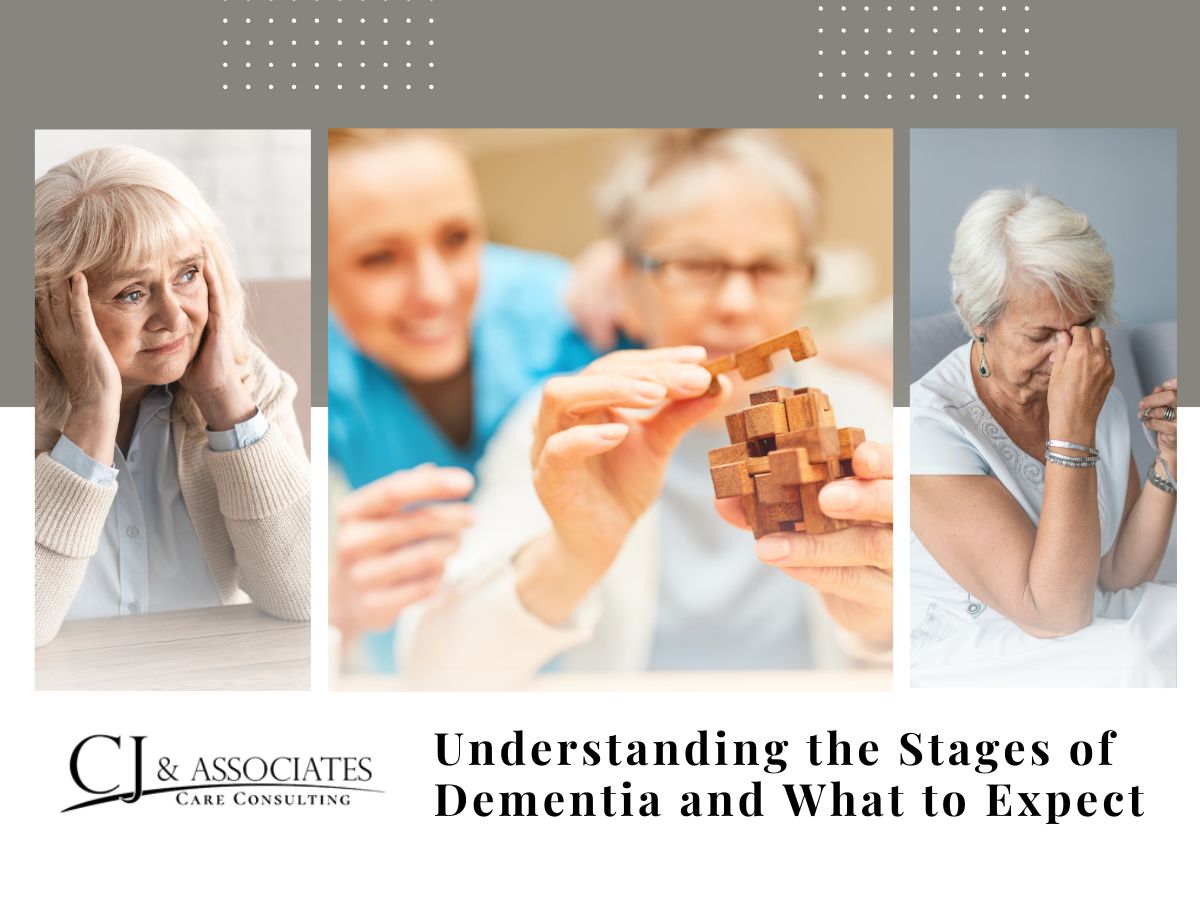Dementia is a progressive condition that affects memory, thinking, and behavior, leading to a decline in a person’s ability to perform everyday tasks. While the rate and progression of dementia vary from person to person, it generally progresses through several distinct stages. Understanding these stages is essential for caregivers, as it helps them plan for the future and adapt their caregiving approach as the disease progresses.
Early Stage: Mild Dementia
In the early stage of dementia, symptoms are often subtle and may be mistaken for normal aging. Individuals may experience mild memory loss, such as forgetting names or recent events, and they may have difficulty concentrating. Other signs may include losing track of time, misplacing items, or struggling with problem-solving and decision-making.
Tips for Caregivers:
- Encourage Independence: Allow your loved one to participate in daily activities for as long as they can. Support them in maintaining routines, but gently offer help when needed.
- Establish a Routine: Create a structured routine to reduce confusion and help the individual stay oriented.
- Stay Patient: Be patient with repeated questions or forgotten conversations. It’s important to offer reassurance and support.
Middle Stage: Moderate Dementia
As dementia progresses to the middle stage, symptoms become more pronounced. Memory loss becomes more significant, and individuals may struggle with recognizing familiar faces or places. They might experience mood swings, confusion, and changes in behavior. There may also be challenges with personal care, such as dressing, bathing, or preparing meals.
Tips for Caregivers:
- Assist with Daily Activities: Provide assistance with daily tasks, but encourage your loved one to do as much as they can independently. Offering gentle reminders can help.
- Communicate Clearly: Use simple, direct language when speaking to your loved one. It’s important to remain calm and patient, even if they become frustrated or agitated.
- Monitor Health: Watch for changes in physical health, as individuals may neglect personal care or forget to take medications. Ensure they are attending regular medical check-ups.
Late Stage: Severe Dementia
In the late stage of dementia, individuals may lose the ability to communicate verbally and require full-time care. They may be unable to recognize family members, become bedridden, and lose control over bodily functions. This stage is marked by significant cognitive and physical decline.
Tips for Caregivers:
- Provide Comfort: Focus on providing comfort, as the individual may not be able to express their needs. Gentle touch and soothing words can help them feel secure.
- Consider Professional Care: At this stage, full-time professional care may be necessary to manage your loved one’s needs. Respite care or in-home caregivers can offer relief for family members.
- Take Care of Yourself: Caregiving can be emotionally and physically exhausting. It’s essential to seek support, whether from friends, family, or professional counseling, to manage stress and avoid burnout.
Conclusion
Dementia is a challenging journey for both the individual and their caregivers. By understanding the stages of dementia and recognizing the symptoms at each stage, caregivers can adapt their approach and provide the best possible care. It’s essential to seek help when needed, whether through professional services or support groups, to ensure that both the caregiver and their loved one receive the care and support they deserve.


